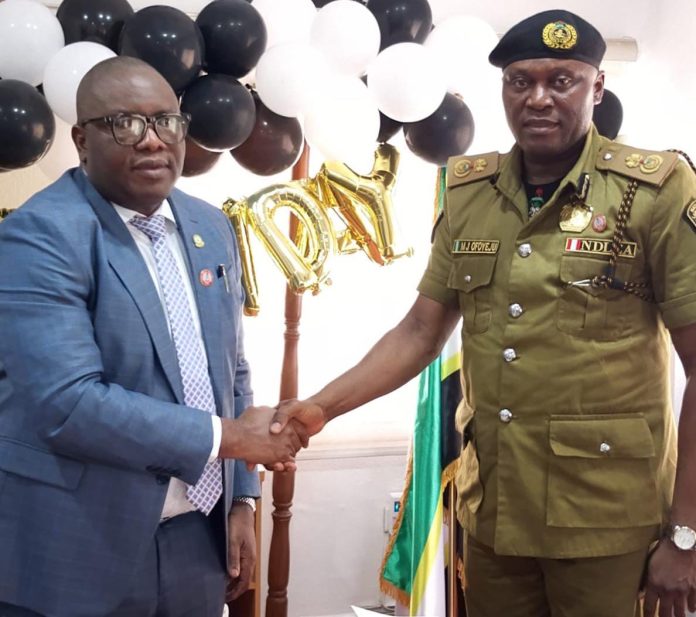The Edo State Commander of the National Drug Law Enforcement Agency (NDLEA), Commander Mitchell Ofoyeju, has held a working visit with key security stakeholders to seek collaborative measures against illicit drug trafficking and abuse. The stakeholders are the Commander, Nigerian Army 4 Brigade in Benin City, Brigadier General Ebenezer Oduyebo; the State Director of the Department of State Services, Isaac Uka Chikere; and the Managing Director of the Edo Geographical Information Service, Dr Tony Ikpasaja.
During the visit, Commander Mitchell emphasised the urgent need for a synergistic approach among various security agencies to combat drug-related crimes effectively. He highlighted the social, economic, cultural and health consequences on communities, stressing that a united front is essential for dismantling drug syndicates operating within Edo State.
“Drug trafficking is an intricate challenge that requires a collaborative effort from all stakeholders involved in maintaining security and public safety. It is imperative that we work together and share intelligence in launching a relentless offensive against these criminal enterprises,” Mitchell stated.
Brigadier General Oduyebo aligned with Mitchell’s call for collaboration, asserting that the Nigerian Army plays a crucial role in securing Nigeria’s borders and combating terrorism, which often intertwines with drug trafficking. He echoed the sentiment that a well-coordinated strategy could significantly disrupt drug flows and dismantle the networks facilitating these illegal activities.
According to Gen. Oduyebo, the Army’s extensive logistical support network is pivotal for sensitive joint operations targeting drug barons. He assured that the Army will assist with transportation, intelligence sharing, and personnel deployment. The use of military vehicles for rapid response, especially in rural and hard-to-reach areas where drug cartels operate. “When we work together in training, we establish trust and improve operational coordination, which is essential for success,” he said.
In addition, Isaac Uka Chikere pointed out the importance of intelligence sharing among the agencies, urging that timely and accurate information is key to preempting drug movements and apprehending traffickers. Uka expressed confidence that by working together, the agencies could strengthen their capabilities to conduct targeted operations.
Dr Tony Ikpasaja highlighted the role of geospatial technology in mapping out drug trafficking hotspots, which could significantly enhance operational planning and resource allocation. He offered to collaborate with the NDLEA to utilise geographic information systems (GIS) for effective monitoring and analysis of drug-related activities.
The working visits stand as a pivotal step in the ongoing efforts to fortify drug law enforcement mechanisms and tackle the scourge of narcotics that has afflicted communities across Nigeria. The combined forces of the NDLEA, the Nigerian Army, the Department of State Services, and the Edo Geographical Information Service mark a significant stride towards a more robust and proactive drug enforcement strategy in Edo State.















